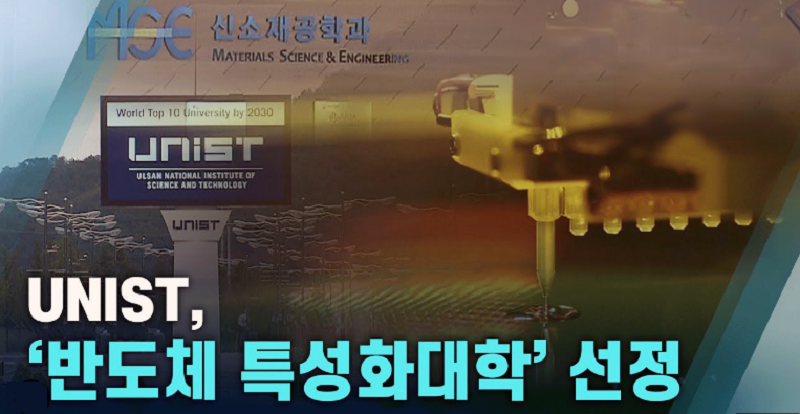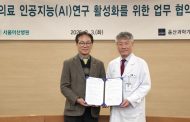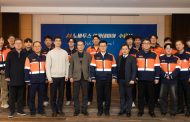UNIST is set to receive a total of 15 billion won over the next four years, composed of national, local, and response funds, to advance its efforts in cultivating professional talents for the semiconductor industry.
The Ministry of Education has announced that it has selected UNIST for the ‘2024 Semiconductor Specialized University Support Project,’ granting the institution 15 billion won (14 billion won from the national funds and 1 billion won from the local budget). This funding will enable UNIST to further expand its academic programs and establish a comprehensive system for nurturing full-time professionals in the semiconductor sector.
Launched in 2023, the ‘Semiconductor Specialized University Support Project‘ aims to create a robust training system and modern facilities for developing skilled professionals who meet industry demands. The initiative encompasses both singular and shared growth models, targeting institutions in metropolitan and non-metropolitan areas. UNIST was ultimately selected through a competitive re-public offering as a recipient for the non-metropolitan category.
In 2021, UNIST established the Graduate School of Semiconductors Materials and Devices Engineering, and in 2023, it was selected for the ‘Semiconductor Specialization Graduate School Support Project’ in 2023 by the Ministry of Trade, Industry, and Energy (MOTIE), producing an impressive 65 skilled talents each year.
Over the next four years, UNIST plans to train 220 skilled professionals in essential areas, such as materials, devices, processes, and packaging. Five departments, including the Department of New Materials Engineering, will collaborate to establish a “Semiconductor Specialized Convergence Major,” which will feature an industry-academia linked curriculum that includes intensive lectures, hands-on projects, and industrial practice.
The funds from the national budget will be allocated for faculty salaries, the construction of research facilities, the acquisition of research equipment, and curriculum development. Additionally, Ulsan Metropolitan City will contribute 1 billion won over three years starting in 2025 to support semiconductor talent cultivation.
UNIST is committed to producing professionals who can be immediately deployed to research and development sites. Students will take the lead in researching core semiconductor technologies, deepening their understanding, and receiving systematic training that fosters collaboration with industry partners, ultimately preparing them as capable practitioners.
“We will systematically cultivate practical talents who will lead the future of the semiconductor industry,” said Professor Soo-Hyun Kim, Head of the initiative and a faculty member in the Department of New Materials Engineering. “Our focus will be on innovative education and research to enhance our position in the global competitive landscape.”
As semiconductors are integral to a wide array of technology sectors, from everyday applications to advanced industries, the demand for skilled professionals in this field is rapidly increasing. UNIST’s selection for this project is expected to significantly contribute to strengthening semiconductor competitiveness both regionally and nationally.







![[2026 Matriculation] UNIST Welcomes Class of 2030!](https://news.unist.ac.kr/wp-content/uploads/2026/02/사진-박종래-UNIST-총장이-2026년-입학식사를-전하고-있다-2-190x122.jpg)
![[2026 UNIST Commencement] UNIST Confers Degrees to 883 Graduates](https://news.unist.ac.kr/wp-content/uploads/2026/02/사진-2026학년도-UNIST-졸업생들이-학사모를-위로-던지며-졸업을-축하하고-있다-1-800x413-190x122.jpg)



